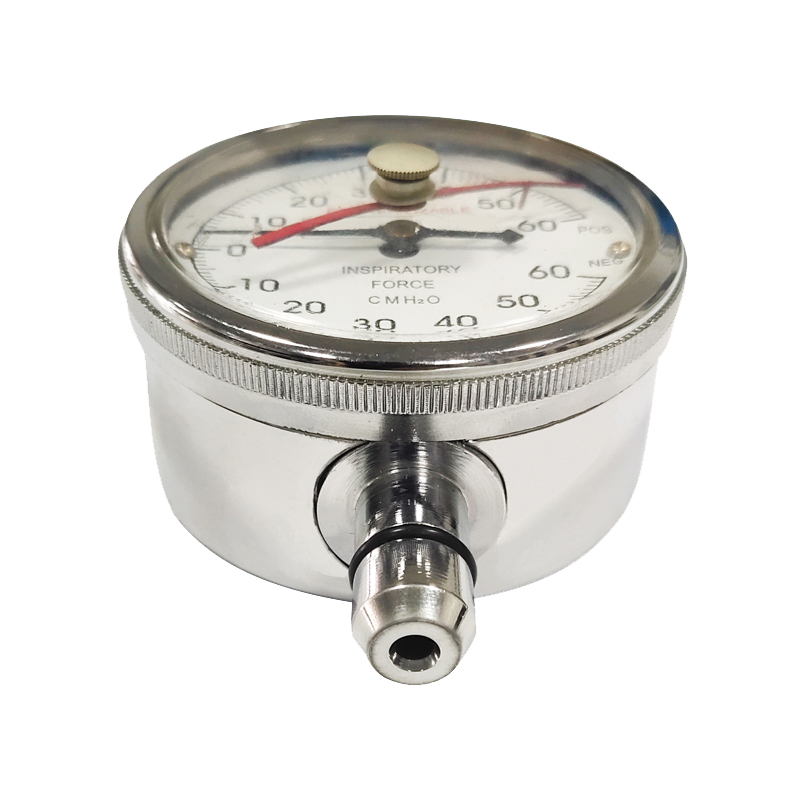
12 月 . 18, 2024 18:22 Back to list
Exploring Diaphragm Pressure Gauge Solutions for Accurate Measurement and Performance
Understanding Diaphragm Pressure Gauge Products
In various industrial applications, accurate pressure measurement is crucial for maintaining safety, efficiency, and consistency. One of the most reliable tools in this regard is the diaphragm pressure gauge. This type of gauge is widely recognized for its ability to measure pressure in a variety of environments, including those with corrosive or viscous fluids. This article will delve into the workings, advantages, applications, and considerations of diaphragm pressure gauge products.
What is a Diaphragm Pressure Gauge?
A diaphragm pressure gauge consists of a sensor element known as a diaphragm, which is typically made from flexible materials such as stainless steel, buna-n, or PTFE (polytetrafluoroethylene). When pressure is applied, the diaphragm bends or deflects, translating that mechanical movement into a readable pressure measurement. This transformation is generally achieved using mechanical linkages that move a pointer across a calibrated scale, or through electronic sensors that provide digital readouts.
Advantages of Diaphragm Pressure Gauges
1. Corrosion Resistance One of the most significant benefits of diaphragm gauges is their ability to withstand harsh environments. Many diaphragm materials can tolerate corrosive substances without degrading, making them ideal for industries such as chemical processing or wastewater treatment.
2. Viscous and Slurry Measuring Capability Diaphragm gauges can accurately measure the pressure of viscous fluids or slurries, which could clog traditional pressure gauges. This feature ensures consistent performance even in challenging conditions.
3. Minimal Maintenance Because of their mechanical design, diaphragm pressure gauges often require less maintenance compared to electronic gauges. Their robust construction minimizes wear and tear, resulting in longer service life.
the diaphragm pressure gauge products

5. Compact Design The compact nature of diaphragm gauges enables their installation in tight spaces, making them versatile for various applications.
Applications of Diaphragm Pressure Gauges
Diaphragm pressure gauges are prevalent in multiple sectors, including but not limited to
- Chemical Processing They are used to monitor and control the pressure of reactive or corrosive fluids, ensuring safety in chemical plants. - Oil and Gas Industry Diaphragm gauges are crucial in monitoring pressures in pipelines, tanks, and refineries, helping to prevent leaks and potential hazards. - Water and Wastewater Treatment In this domain, diaphragm gauges measure pressure in pipelines and treatment processes, ensuring optimal operation. - Food and Beverage Compliance with hygiene standards is necessary in this industry, and diaphragm gauges made from sanitary materials are employed to monitor pressure in fluid transport and processing. - Pharmaceuticals They are used for pressure measurement in sterile environments, contributing to the efficacy and safety of pharmaceutical products.
Considerations When Choosing Diaphragm Gauges
When selecting diaphragm pressure gauge products, several factors must be taken into account
1. Material Compatibility Ensure that the diaphragm material is compatible with the process fluid to prevent chemical reactions or degradation over time. 2. Pressure Range Choose a gauge that accommodates the expected pressure range, including any peaks that may occur during operation. 3. Accuracy Requirements Different applications may require different levels of accuracy. Select a gauge that meets the precision needed for your processes. 4. Installation Environment Consider the temperature, vibration, and potential for clogging. A suitable gauge can enhance performance and reliability in specific settings. 5. Calibration and Maintenance Needs While diaphragm gauges generally require minimal upkeep, periodic calibration may still be necessary to ensure accuracy.
Conclusion
Diaphragm pressure gauge products stand out as vital instruments in various industries where pressure measurement is essential. Their durability, resistance to corrosion, and ability to handle challenging fluids make them an ideal choice for numerous applications. By understanding their characteristics and advantages, businesses can effectively implement diaphragm pressure gauges to enhance safety, efficiency, and overall operational performance. With the right gauge in place, industries can ensure reliable and accurate pressure monitoring, contributing to their success in today’s competitive landscape.
-
High-Precision 5 Valve Manifold Differential Pressure Gauge Suppliers
NewsApr.29,2025
-
High-Precision Diaphragm Vacuum Pressure Gauges Manufacturers & Quotes
NewsApr.29,2025
-
Omega Differential Pressure Gauges High Accuracy & Durability
NewsApr.28,2025
-
Low Pressure Differential Pressure Gauges Precision Solutions & Quotes
NewsApr.28,2025
-
Digital Diaphragm Pressure Gaauge Precision Measurement & OEM Quotes
NewsApr.28,2025
-
Differential Pressure Gauge China Price High-Accuracy & Best Quotes
NewsApr.28,2025
